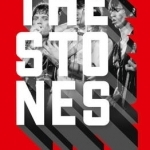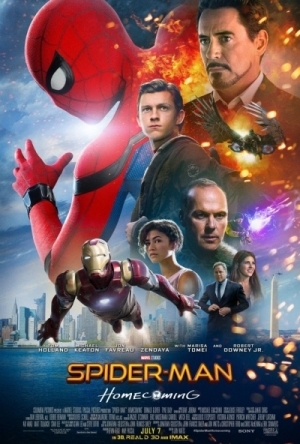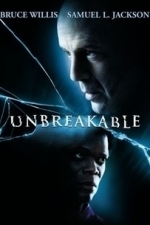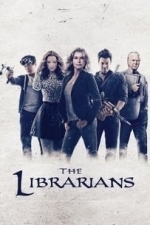Search
Search results
Awix (3310 KP) rated Godzilla Vs Hedorah (1971) in Movies
May 17, 2019
The movie that goes to show that when it comes to allegorical fables about the environment featuring man-in-a-suit monsters, subtlety isn't always necessary. Pollution-spawned jelly-beastie develops various peculiar powers and threatens Japan; Godzilla turns up to deal with it. Is the subtext that we should choose nuclear power over fossil fuels? Unlikely but possible.
Godzilla Vs Hedorah makes itself distinctive amongst the Godzilla films of the early 70s by virtue of its sheer, insidious weirdness, most of it due to Banno's direction: there are sudden switches to black-and-white, split screen sequences, educational segments, and allegorical cartoons. Doesn't stop it being mostly awful, but in a strangely hypnotic way, and it least it's obviously about a serious issue for a change. Possibly most infamous for the sequence where Godzilla uses his atomic breath as rocket thrust to fly with, but much other weirdness is also present. Bad, but very watchably bad.
Godzilla Vs Hedorah makes itself distinctive amongst the Godzilla films of the early 70s by virtue of its sheer, insidious weirdness, most of it due to Banno's direction: there are sudden switches to black-and-white, split screen sequences, educational segments, and allegorical cartoons. Doesn't stop it being mostly awful, but in a strangely hypnotic way, and it least it's obviously about a serious issue for a change. Possibly most infamous for the sequence where Godzilla uses his atomic breath as rocket thrust to fly with, but much other weirdness is also present. Bad, but very watchably bad.
ArecRain (8 KP) rated DV8: Gods and Monsters in Books
Jan 18, 2018
What a fantastic series. It is a shame that more people don't know about it. As a sequel to the first DV8, the first thing I noticed about this comic is that the artwork is so much better than the first. In fact, I find it beautiful.
The story line is one of the best I have read in a long time. These eight people with powers are dropped onto a primitive planet where they are seen as gods. The story is told through Copy Cat, or Gem, who has the power to control people but also has split personalities. The story begins with her sitting in an interrogation cell. As she explains what happened to them after they were dropped on the planet, the art flashback to show what happened in the past.
Such an intriguing story that had me entranced from page one. I couldn't put it down. A must read for the comic fan looking for a different type of story.
The story line is one of the best I have read in a long time. These eight people with powers are dropped onto a primitive planet where they are seen as gods. The story is told through Copy Cat, or Gem, who has the power to control people but also has split personalities. The story begins with her sitting in an interrogation cell. As she explains what happened to them after they were dropped on the planet, the art flashback to show what happened in the past.
Such an intriguing story that had me entranced from page one. I couldn't put it down. A must read for the comic fan looking for a different type of story.
Zach Smith (62 KP) rated Spider-Man: Homecoming (2017) in Movies
May 29, 2018
The very best
The reboot of the reboot of our web slinger, this time around making Peter Parker with an actor who appears high school aged and not thirty something. It starts off without the origin which was a weird surprise but I think they believed the audience is well aware of how spidey got his powers so why not save some space and skip ahead to where he is experimenting being a superhero. Michael Keaton is cast as the Falcon but he is able to channel his badass side and make this character more than just a glider suite. The relationship between Tony Stark and Peter is cute and again the best part of this is Tom Hollands performance and youthfulness.
Sarah (7800 KP) rated Unbreakable (2000) in Movies
Jul 27, 2018
Better than I remembered
I havent seen this since it first came out and I remember then not being very impressed, especially when comparing it to The Sixth Sense. It also didn't help that I didn't know much about comics and superheroes back then.
Watching this again, I have realised it is a good film. It has a great concept and an intriguing plot, although is a bit of a slow burner. The big reveal at the end is entirely unexpected (the first time round anyway) and Samuel l Jackson does a great job. It's never going to be as good as The Sixth Sense and it's a completely different type of film. I'd also say that Split is better, but the plot of this is very different to Unbreakable so it's difficult to compare in detail. Unbreakable isn't perfect but it's much better than I remembered.
It has really made me look forward to Glass even more too.
Watching this again, I have realised it is a good film. It has a great concept and an intriguing plot, although is a bit of a slow burner. The big reveal at the end is entirely unexpected (the first time round anyway) and Samuel l Jackson does a great job. It's never going to be as good as The Sixth Sense and it's a completely different type of film. I'd also say that Split is better, but the plot of this is very different to Unbreakable so it's difficult to compare in detail. Unbreakable isn't perfect but it's much better than I remembered.
It has really made me look forward to Glass even more too.
Elizabee (221 KP) rated The Librarians - Season 1 in TV
Jun 17, 2019
Contains spoilers, click to show
While watching this season it became apparent very quickly that it was a story that in some ways branched off from the film. The original librarian was off on his own adventure and this season was very much about the the three new ones and the guardian. There is a math wiz with a grape in her brain that gives her a 3D out of brain view of all things math which makes it easier to solve puzzles, there is a thief that can get in any where and also a architect/art history buff that can tell you what anything art related is or where it came from. Basically they have gotten the key aspect of the original librarian and split it in to three people and enhanced it by a thousand. If you like love mystery, action or just a good laugh there is every thing in this program.
David McK (3687 KP) rated Civil War II in Books
Jan 28, 2019
The original Civil War storyline - which sees Captain America and Iron Man/Tony Stark come down on different side of the ethical debate over whether Super-powered individuals should be subject to governmental oversight - was adopted for the 2016 Marvel Cinematic Universe film 'Captain America: Civil War'.
I could very easily see this being adopted for a later film, after the as-yet-unfinished 'Infinity War'. Once again, we have a split in the super-hero community, this time brought about by the discovery of a new Inhuman who appears to be able to see the future -on the one hand, we have those who believe that they have to do whatever they can to stop those visions coming true (even if it means arresting the individual before the crime: hello, 'Minority Report'!) whilst on the other we have those that believe these are only potential futures, and that, well, the crime has to come before the punishment!
I could very easily see this being adopted for a later film, after the as-yet-unfinished 'Infinity War'. Once again, we have a split in the super-hero community, this time brought about by the discovery of a new Inhuman who appears to be able to see the future -on the one hand, we have those who believe that they have to do whatever they can to stop those visions coming true (even if it means arresting the individual before the crime: hello, 'Minority Report'!) whilst on the other we have those that believe these are only potential futures, and that, well, the crime has to come before the punishment!
David McK (3687 KP) rated Ice Station Zebra in Books
Jan 30, 2019
Cold-War set thriller, by an author that (for some reason) I associate more with World War 2 settings, this concerns the journey of the Atomic submarine Dolphin to the Arctic, in order to rescue the survivors of the adrift Ice Staion of the title.
I also feel that this could be split into 3 very distinct sections - the journey to the Arctic, the search and rescue of the survivors, and the journey back, with it transpiring in the middle section that the Ice Station had been sabatoged, rather than just plain unlucky, and with it furhter being revealed in the final section that the saboteour is still alive and on the sub ...
While it may be slightly dated now (in that the USSR is no longer in existence) and in some of the state-of-the-(then)-art technology, this is still an enjoyable read once you put yourself into the right mindset!
I also feel that this could be split into 3 very distinct sections - the journey to the Arctic, the search and rescue of the survivors, and the journey back, with it transpiring in the middle section that the Ice Station had been sabatoged, rather than just plain unlucky, and with it furhter being revealed in the final section that the saboteour is still alive and on the sub ...
While it may be slightly dated now (in that the USSR is no longer in existence) and in some of the state-of-the-(then)-art technology, this is still an enjoyable read once you put yourself into the right mindset!
David McK (3687 KP) rated Brothers in Arms in Books
Jan 30, 2019
Sold with the tag-line "If you like Sharpe, Jack Steel is your man", it's not hard to see the influence of Bernard Cornwell's eponymous hero on this novel: the only real difference beng that, while Sharpe is set during the Napoleonic Wars, this novel (the third in a series, apparently), is set during the Wars of Marlborough (1702 - 1713).
However, an unlike a Sharpe novel, this one never really gripped me: I never really seemed to connect with the title character at all. While it is written as one, this book could also easily be split into three main sections: the first part concentrating on the battle of Oudenarde, the middle part with Steel going undercover in Paris, and the final part with the siege of Lille: it's just a pity that none of these really grips and so, while I may read some more in the series, I won't be going out of my way to look for them.
However, an unlike a Sharpe novel, this one never really gripped me: I never really seemed to connect with the title character at all. While it is written as one, this book could also easily be split into three main sections: the first part concentrating on the battle of Oudenarde, the middle part with Steel going undercover in Paris, and the final part with the siege of Lille: it's just a pity that none of these really grips and so, while I may read some more in the series, I won't be going out of my way to look for them.
David McK (3687 KP) rated The Philosophy Book in Books
Jan 30, 2019
With over 2000 years of history, no book could seek to cover each and every aspect of philosophical thought.
What this does, instead, is to give a broad overview of the main works of the main thinkers (SOcrates, Plato, Descartes, Karl Marx, etc) of any particular era, with the book itself split into 6 main sections, as follows:
1) The Ancient World (700 BCE - 250 CE)
2) The Medieval World (250 - 1500)
3) Renaissance and the Age of Reason (1500 - 1750)
4) The Age of Revolution (1750 - 1900)
5) The Modern World (1900 -1950)
6) Contemporary Philosophy (1950 - present)
Nicely illustrated throughout, and with a little bit of history on the thinker themselves, this is a good intro for anybody interested in the subject. (Speaking personally, the closer the philosophy got to contemporary years, the less interesting I found it - I was more interested in the likes of Plato, Socrates and Descartes, for instance, than in Jacques Derrida).
What this does, instead, is to give a broad overview of the main works of the main thinkers (SOcrates, Plato, Descartes, Karl Marx, etc) of any particular era, with the book itself split into 6 main sections, as follows:
1) The Ancient World (700 BCE - 250 CE)
2) The Medieval World (250 - 1500)
3) Renaissance and the Age of Reason (1500 - 1750)
4) The Age of Revolution (1750 - 1900)
5) The Modern World (1900 -1950)
6) Contemporary Philosophy (1950 - present)
Nicely illustrated throughout, and with a little bit of history on the thinker themselves, this is a good intro for anybody interested in the subject. (Speaking personally, the closer the philosophy got to contemporary years, the less interesting I found it - I was more interested in the likes of Plato, Socrates and Descartes, for instance, than in Jacques Derrida).

The Stones: The Acclaimed Biography
Book
In 2012 the Rolling Stones celebrate their 50th anniversary. Their story - the band's meteoric rise...




